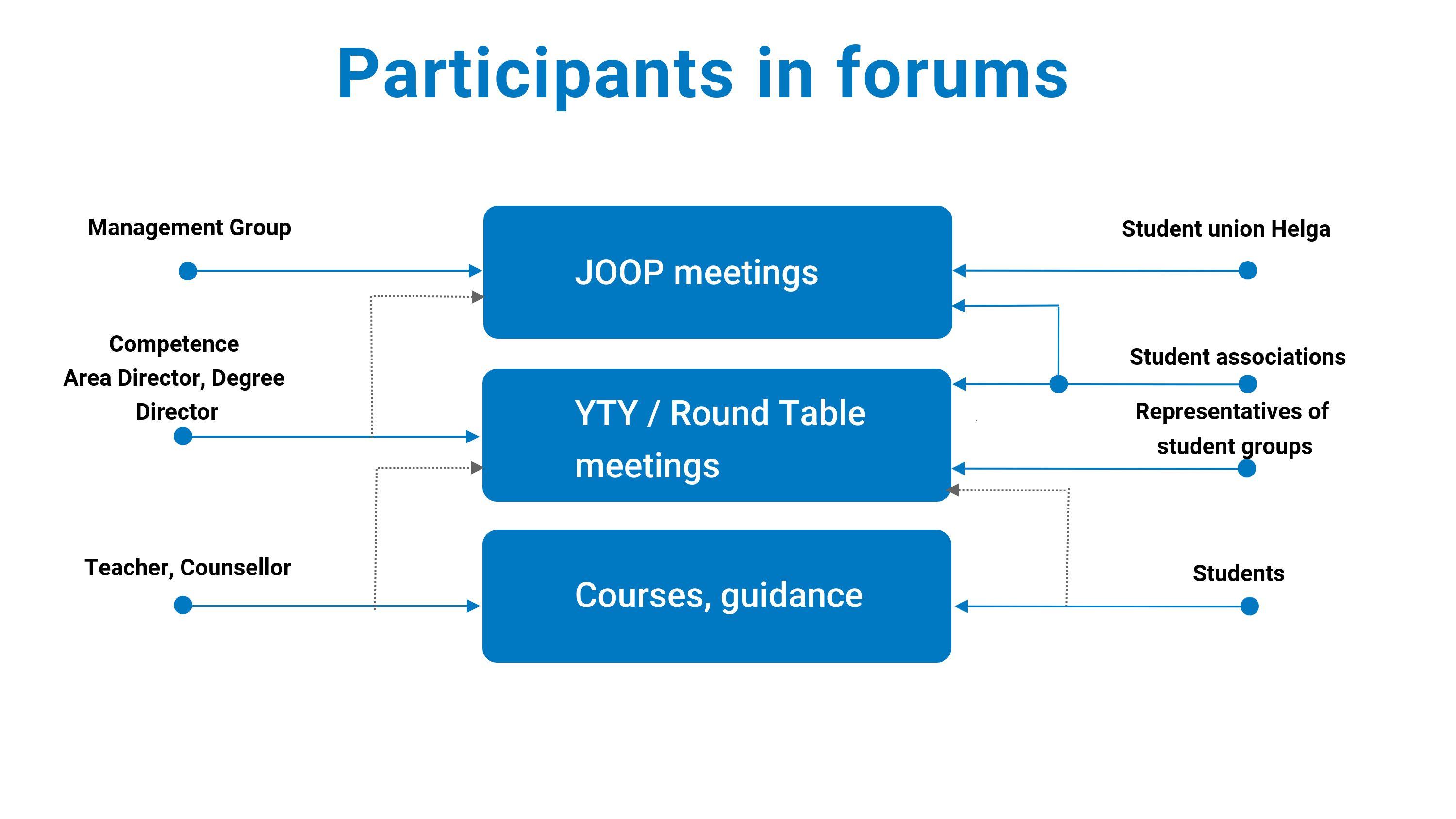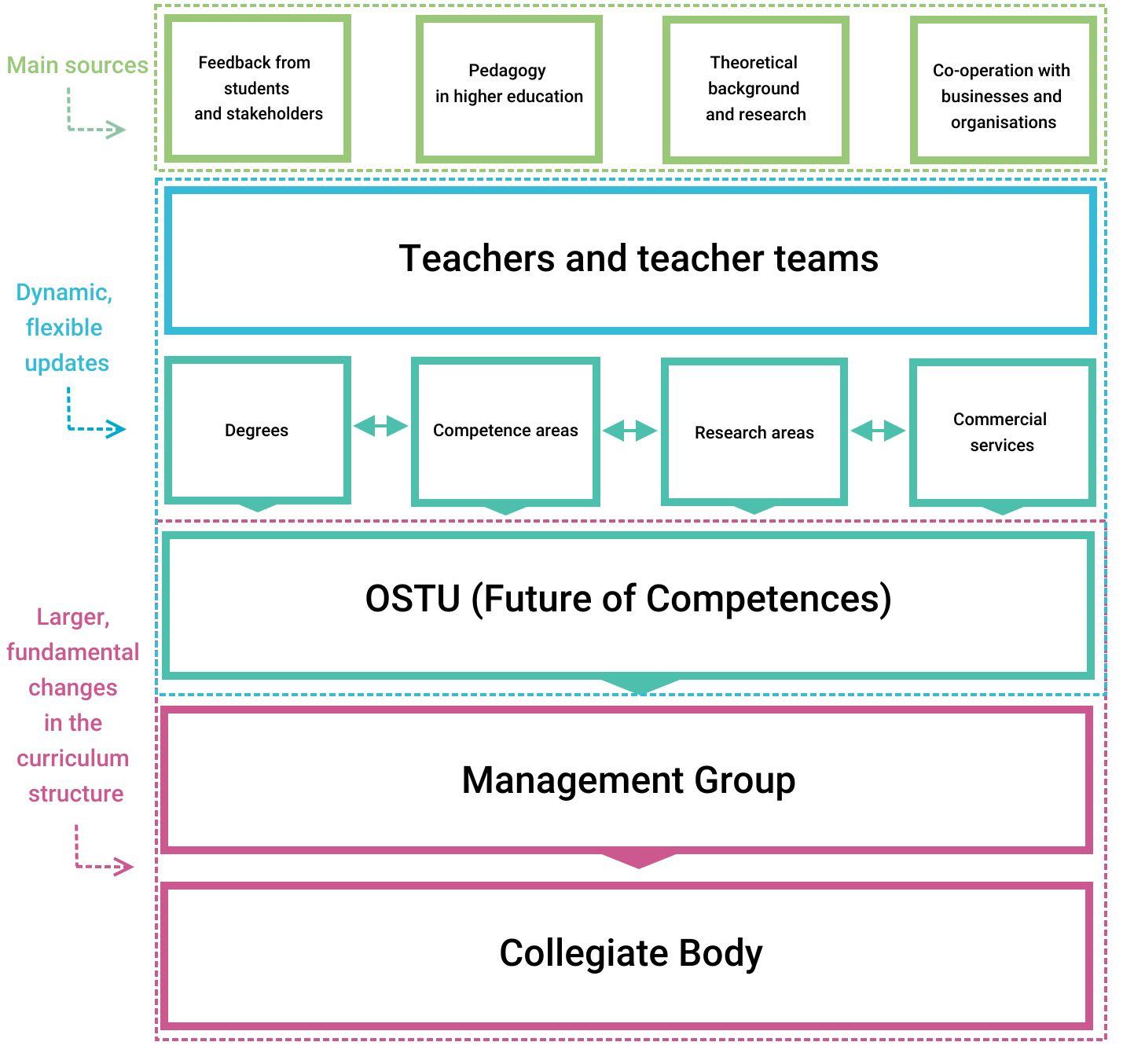Haaga-Helia’s new organisational structure promotes dialogue and collaboration in the development of education
Haaga-Helia’s educational provision is internally evaluated and further developed using a range of feedback channels and institutional data. During the interviews, employers, students, and staff demonstrated proactive participation in the development of education content. Overall, the students’ feedback highlighted their explicit satisfaction with their role in the curriculum development and renewal process. They indicated that their studies are highly useful, practical, diverse, and future-oriented. This high level of involvement from teachers, students, and external stakeholders was confirmed in both the interviews and the additional material. The degree programmes take into account current research data and future skill needs, focusing on campuses, degrees, and competence areas. During the student workshops it was evident that the participants valued the new model of programme planning and the various feedback opportunities offered by the degree programmes.
Overall, the audit team concludes that Haaga-Helia uses a systematic approach for the enhancement of education that meets the requirements of the audit. In the process of developing and optimising a module, students’ and teachers’ feedback is gathered and assessment data is derived on a regular basis, i.e., from regular course feedback. Haaga-Helia gathers feedback regularly and reacts upon the feedback in systematic ways, but the transparency to students regarding follow-up actions could be more structured and consistent. At Haaga-Helia, teachers are encouraged to discuss feedback with their students systematically, but based on the interviews it was mentioned that it is decided by the teachers if they want to give feedback on the feedback. Hence, a point of development, as indicated by students in the workshop and in the interviews of the student representatives, is the provision of feedback on their feedback. In this context it was also mentioned that students are “tired of giving feedback” and that according to the students feedback is only filled out when there is a problem. Hence, the audit team encourages Haaga-Helia to find ways of increasing the percentage of teachers giving students feedback on feedback as well as students systematically participating in the feedback procedures, i.e., by implementing evaluation workshops.
Communication, dialogue and openness are encouraged at Haaga-Helia—implementation requires further actions
For Haaga-Helia, its people are at the centre of all core areas. As stated in the self-assessment report as well as during the interviews, the promotion of staff and student well-being through equity and impartiality, transparent communication, cooperation and a stimulating work atmosphere are vital constituents of Haaga-Helia’s strategy, encouraging discussion and openness through dialogue and collaboration. The new organisational structure aims at promoting internal cooperation, discussing issues related to degrees, teaching, study environment and practical arrangements, as well as receiving and providing briefings to find solutions to problems and development needs. Staff and students expressed their explicit appreciation for the various ways feedback can be submitted as well as dialogue is promoted. However, there is more space for better communication and cooperation as well as systematically bringing students, staff, as well as local businesses together. In the workshops as well as the interviews the most dominant enhancement area mentioned was communication. Both among staff and across the different campuses cooperation and communication among different areas of expertise should be systematically enabled, because as one of the interviewees described the situation “the big problem is that different people do not know what is happening elsewhere”. In particular, the interviews supported the idea that the concept of remote-working, which was implemented at Haaga-Helia as a permanent feature after Covid-19, seems to hinder continuous exchange and frictionless communication. The audit team encourages Haaga-Helia to think about new exchange formats or to find ways to systematically bring all stakeholders closer together to cooperate and communicate.


